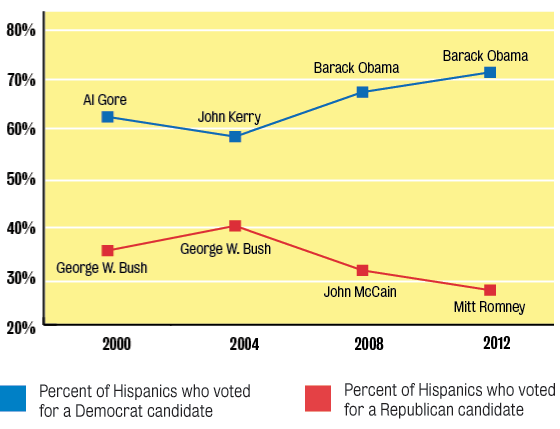Editor’s note: Hayden Padgett, a columnist for the Daily Bruin and fourth-year political science student, is spending his fall quarter in the nation’s capital.
The presidential election has come to a close, much to the pleasure of the many tired campaigners in the District of Columbia.
President Barack Obama has been re-elected and Democrats marginally extended their control over the Senate while Republicans barely held their majority in the House of Representatives.
The American people cast their lot with a second term for President Obama, effectively voicing their preference for big government. But the people sent a second message with their votes: they demanded an end to partisanship.
Following the election, President Obama seized on his advantage with Hispanic voters and called for bipartisan reform of U.S. immigration policy. On Capitol Hill, Speaker of the House John Boehner (R-Ohio) asked his Republican colleagues to begin work on “comprehensive immigration reform” ““ an immigration policy that tightens the U.S. border while providing a real pathway to citizenship for undocumented immigrants.
This was the first time Boehner made such a request of his fellows, indicating an awareness on the part of the GOP of the Hispanic population’s unfavorable reception to its stance on immigration.
Regardless of the intentions behind this olive branch, Boehner’s move has a chance of resolving the immigration gridlock, which should be the end goal of any congressional partnership.
Conservative pundits admit that the Republican Party’s hard-line position on immigration reform was a leading contributor to the party’s losses within America’s significant Hispanic population on Nov. 6. Polls show that nearly three-fourths of Hispanics voted for President Obama over Gov. Mitt Romney.
For many student supporters of migrant rights, this should symbolize a positive development and hopefully a new status quo in Congress.
With both sides working toward common ground, there is a genuine opportunity for lawmakers to responsibly resolve the challenges faced by immigrant students in the U.S., particularly in California, where immigration issues have put the state’s “sanctuary cities” at odds with the federal government.
Such action will resonate strongly with voters in California, where the Hispanic population is expected to exceed the white population by 2020, and will have significant implications for the state’s higher education systems.
For almost two years, the U.S. Congress and the White House have been largely incapable of effective and decisive action on such issues.
Both parties have stonewalled compromise and stubbornly refused to yield.
With any luck, the President’s and the Speaker’s bipartisan sentiments will translate into positive action on immigration, an outcome that will be welcomed at UCLA and beyond.
Email Padgett at hpadgett@media.ucla.edu. Send general comments to opinion@media.ucla.edu or tweet us @DBOpinion.
